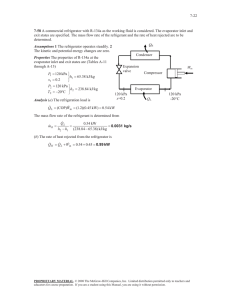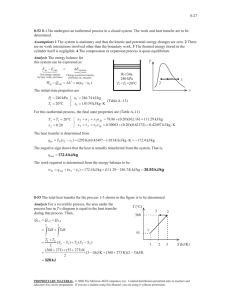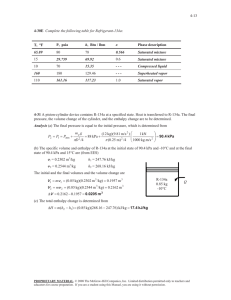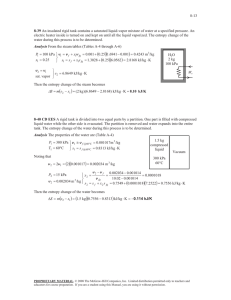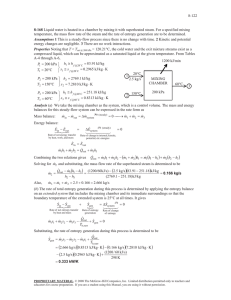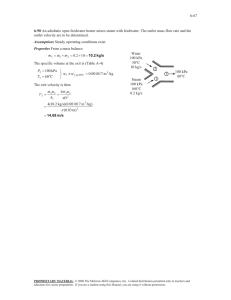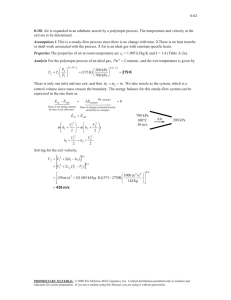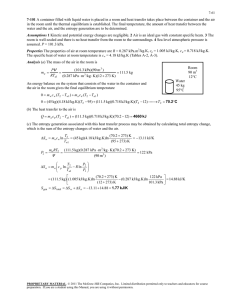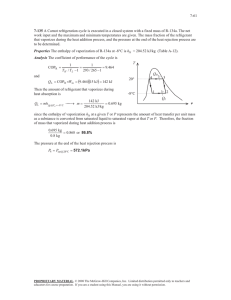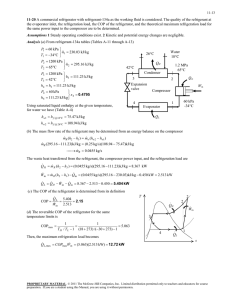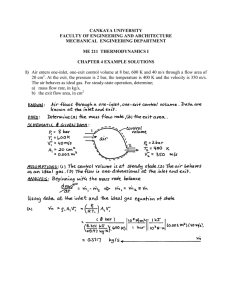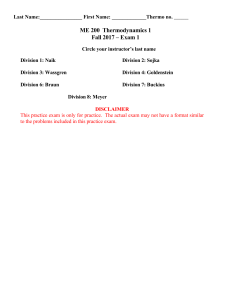are to be determined.
advertisement
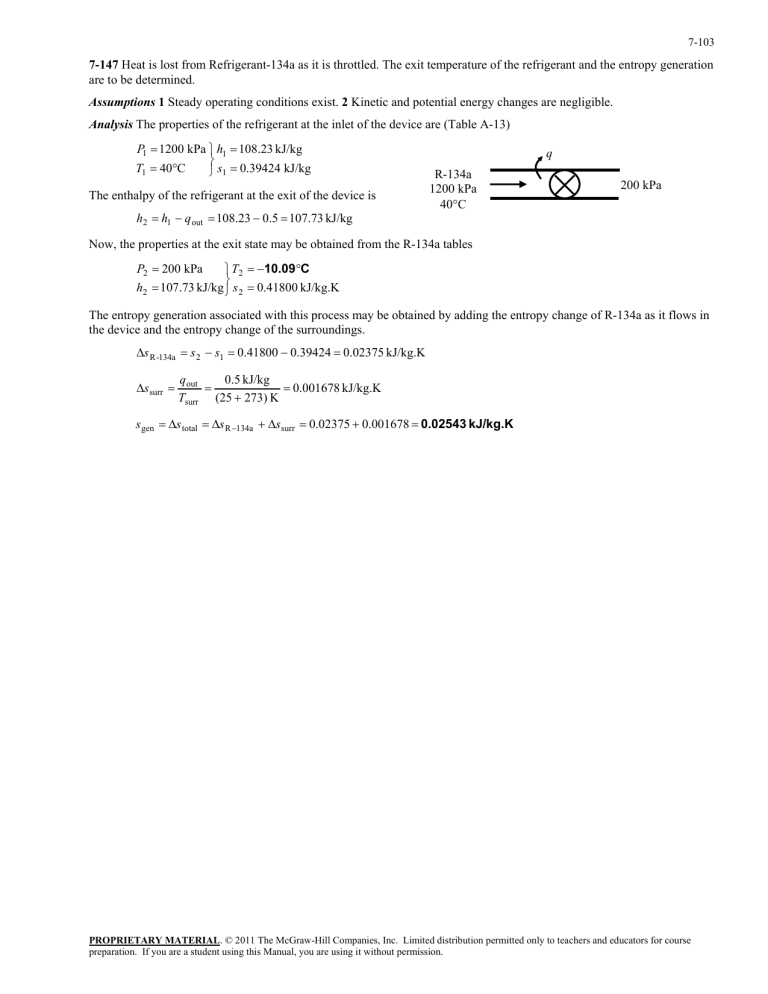
7-103 7-147 Heat is lost from Refrigerant-134a as it is throttled. The exit temperature of the refrigerant and the entropy generation are to be determined. Assumptions 1 Steady operating conditions exist. 2 Kinetic and potential energy changes are negligible. Analysis The properties of the refrigerant at the inlet of the device are (Table A-13) P1 1200 kPa h1 108.23 kJ/kg T1 40C s1 0.39424 kJ/kg The enthalpy of the refrigerant at the exit of the device is h2 h1 q out 108.23 0.5 107.73 kJ/kg q R-134a 1200 kPa 40C 200 kPa Now, the properties at the exit state may be obtained from the R-134a tables P2 200 kPa T2 10.09C h2 107.73 kJ/kg s 2 0.41800 kJ/kg.K The entropy generation associated with this process may be obtained by adding the entropy change of R-134a as it flows in the device and the entropy change of the surroundings. s R -134a s 2 s1 0.41800 0.39424 0.02375 kJ/kg.K s surr q out 0.5 kJ/kg 0.001678 kJ/kg.K Tsurr (25 273) K s gen s total s R 134a ssurr 0.02375 0.001678 0.02543 kJ/kg.K PROPRIETARY MATERIAL. © 2011 The McGraw-Hill Companies, Inc. Limited distribution permitted only to teachers and educators for course preparation. If you are a student using this Manual, you are using it without permission.
